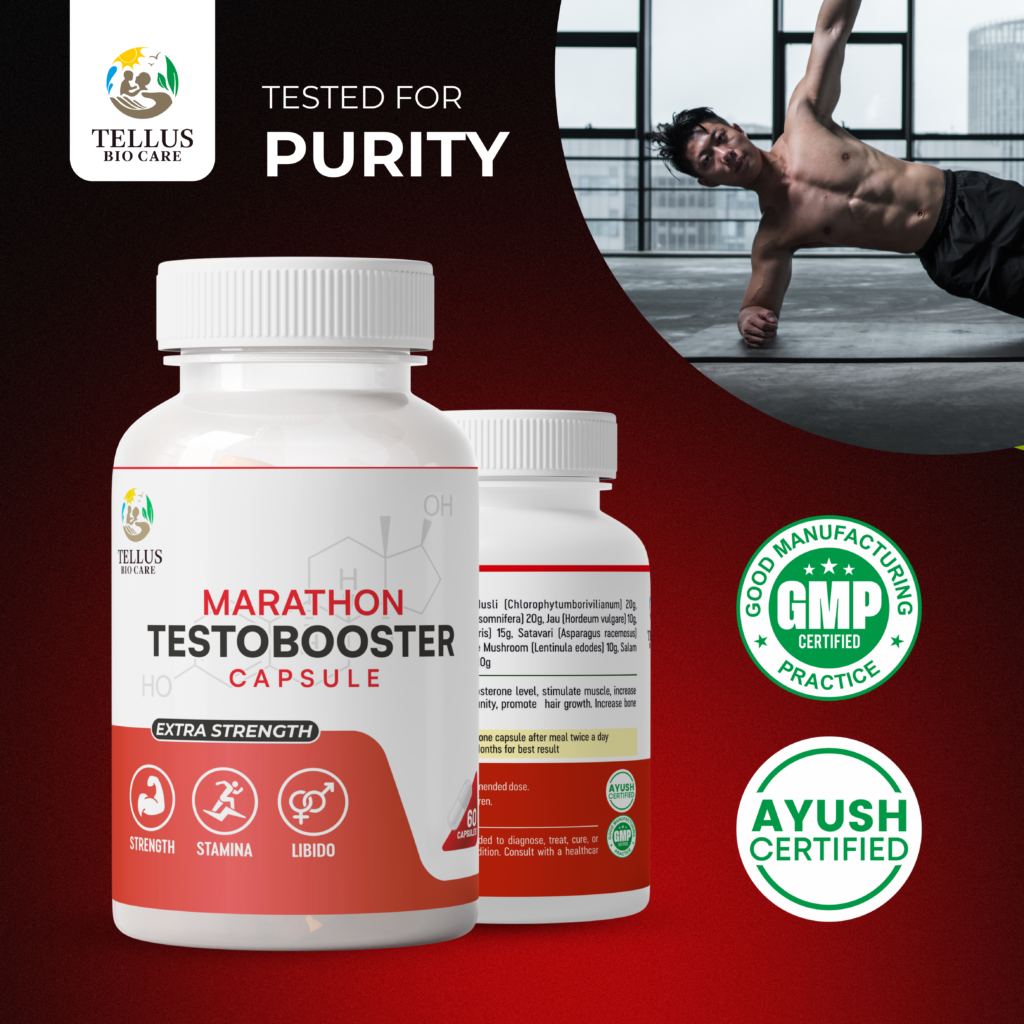Testosterone is a necessary hormone for humans’ overall health, and it plays a key role in several stages of our lives, from improving muscle strength to sexual well-being. Irrespective of gender, testosterone affects human health and can cause low testosterone called male hypogonadism which can disturb an individual’s life quality.
Testosterone is mainly produced in the men’s testes and in small numbers in the adrenal. It balances various body functions like men’s sexual features, including bone and muscle growth, deeper voice, and facial hair. Meanwhile, it improves mood and promotes energy, and overall health.
Furthermore, low levels of testosterone are identified by inadequate amounts of testosterone in the body. This problem can develop at any age, but its risk is usually increased in adults over 30.
What Causes Low Testosterone?
- Ageing—There is a very common reason behind low testosterone: declining age. Basically, testosterone development starts decreasing at age 30, and it continuously decreases throughout life. At the time, when a man reaches their 70s, they may experience lower levels of testosterone as compared to their young age.
- Hypogonadism—Hypogonadism means an insufficient amount of the testes and ovaries produced in men and women, respectively. This can be hereditary or develop slowly due to infection or any medical conditions.
- Long-term medical conditions – Several chronic diseases and illnesses can be the reason for low testosterone, such as liver disease, metabolic syndrome, diabetes, and kidney disease. These are the reasons that can disturb the hormonal balance of the body and damage the regulation and production of testosterone.
- Medications—Some medicines, mainly those consumed for psychiatric conditions and pain management, can cause low production of testosterone.
- Obesity—High levels of cholesterol and body fat can cause lower testosterone. Excessive fat may occur with oestrogen which can lead to imbalanced hormones.
- Poor diet—Meals lacking necessary nutrients, vitamins, and fiber can have a high impact on the production of testosterone. Vitamin D is a potent component in better hormone function, and zinc is an essential component in testosterone synthesis.
- Lack of exercise—Unhealthy ways of living and choices can also come up with low testosterone production. Regular exercises, meditation, and muscle improvement training can assist in healthy testosterone production.
- Depression and anxiety—Depression and anxiety can increase stress hormone levels, which might be the reason for low testosterone production. Individuals can go with stress management therapies if they are experiencing the same.
Signs Your Testosterone Might Be Low
Low testosterone symptoms can vary from person to person. Some individuals may experience multiple symptoms more intensely, while others might not have any symptoms at all. Some common symptoms are:
- Diminished libido: The most common and visible symptoms are reduced libido and no sexual desire. Individuals who are experiencing low libido often report low passion for sexual activity.
- Erectile dysfunction: Low testosterone can make a person unable to maintain an erection for sexual intercourse. This is the illness that affects the ability to engage in sexual intercourse.
- Emotional instability—Mood swings, depression, frustration, and sadness can be the reasons for low testosterone production. Meanwhile, some people may struggle to balance frustration and mood stability.
- Muscular atrophy—Healthy testosterone levels play an important role in the balance and development of muscle. Low testosterone can cause muscle strength and decreased body functions.
- Decreased cognitive function—Individuals with low testosterone may experience difficulties with memory and cognitive dysfunction. Memory and cognitive problems can impact daily work balance and overall mental health.
- Low sperm count—Testosterone plays a necessary role in sperm count. Therefore, low testosterone production may impact sperm count and certainly reduce fertility strength.
- Testis atrophy—Individuals with low testosterone can also experience testicular shrinkage, which causes discomfort.
The Life-Changing Benefits of Boosting Testosterone
Treating the low testosterone problem can have several beneficial effects, such as:
Boosted libido—Treating low testosterone issues can improve sexual activities and function.
Enhanced sense of well-being—Balancing hormones can help to maintain emotional stability and reduce frustration.
Enhanced muscle development—Addressing low T can assist with boosting strength and muscle growth.
Enhanced stamina—Many individuals experience body strength and endurance after treating low testosterone production.
How to Naturally Boost Your Testosterone Levels
Two ways are effective in treating testosterone levels: medical treatments and natural ones. Medical treatments like hormone restoration procedures are effective if symptoms persist or levels of testosterone are low. Natural procedures, including lifestyle improvements, are beneficial for the initial stage.
Natural ways to boost testosterone
- Muscle-building exercises
- Nutrition
- Weight management
- Lifestyle improvements
Medical procedures to boost testosterone
Medical methods are used to treat low testosterone production and related symptoms. Meanwhile, medical procedures work in several ways to improve testosterone levels, and the choice of medication depends on professionals’ recommendations and one’s preferences. Here are some ways to improve testosterone levels with medical treatments.
- Hormone replacement therapy (HRT)
- Topical creams and gels
- Oral medication
- Testosterone injections
- Transdermal patches
- Pellets or implant
Conclusion
The choice of medical and natural treatments should consider the patient’s preferences, health conditions, and the challenges and advantages associated with each procedure. However, regularly monitoring the health condition is important to ensure that the considered procedure effectively improves testosterone levels, without any risk of side effects.


Hi, this is a comment.
To get started with moderating, editing, and deleting comments, please visit the Comments screen in the dashboard.
Commenter avatars come from Gravatar.